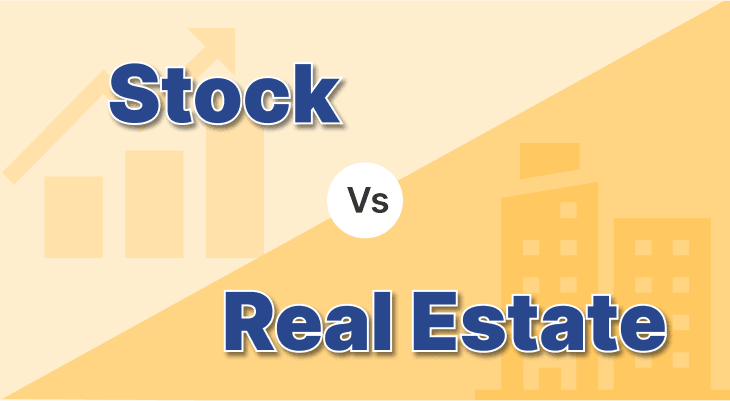
Real Estate vs. Stocks: Which is the Best Wealth-Building Strategy?
Investors often debate whether real estate or stocks are the superior choice for long-term wealth accumulation. Both asset classes offer unique advantages and potential risks. The decision depends on factors such as risk tolerance, investment horizon, and financial goals. This document compares real estate and stock investments based on key factors such as returns, risk, liquidity, diversification, and passive income.
1. Returns and Appreciation
- Real Estate: Historically, real estate has provided an annual return of 8-12%, depending on location, market conditions, and property type. Home values generally appreciate over time, and investors can leverage properties to amplify returns.
- Stocks: The stock market has delivered an average return of 10% per year, based on the performance of the S&P 500. While stocks can be more volatile, they offer significant long-term growth potential and compounding benefits.
2. Risk and Volatility
- Real Estate: Real estate investments are relatively stable compared to stocks but are subject to market downturns, economic recessions, and localized risks. Property values fluctuate less frequently, but individual property investments may be affected by maintenance costs, tenant issues, and interest rate changes.
- Stocks: Stocks are highly volatile, influenced by market sentiment, economic conditions, and corporate performance. However, diversification through mutual funds or index funds can help reduce individual stock risks.
3. Liquidity
- Real Estate: Selling a property can take weeks or months due to market conditions, financing requirements, and closing processes. It is a less liquid investment compared to stocks.
- Stocks: Stocks are highly liquid; they can be bought and sold within seconds during market hours. This makes them an attractive option for investors who may need quick access to their capital.
4. Diversification Opportunities
- Real Estate: Real estate portfolios require significant capital to diversify across different property types or geographic locations. Investors may need multiple properties to spread risk effectively.
- Stocks: Stocks offer easy diversification through index funds, ETFs, and mutual funds. Investors can spread their risk across various sectors, industries, and geographies with minimal capital.
5. Passive Income Generation
- Real Estate: Rental properties generate consistent passive income, with opportunities for cash flow and appreciation. However, managing tenants and property maintenance requires effort unless handled by a property management company.
- Stocks: Dividend-paying stocks provide passive income with less effort than real estate. Many blue-chip stocks offer reliable dividend yields, allowing investors to generate income without direct management.
6. Tax Benefits
- Real Estate: Real estate investors benefit from tax deductions on mortgage interest, property depreciation, maintenance costs, and capital gains deferral through 1031 exchanges.
- Stocks: Stocks are subject to capital gains taxes when sold, though long-term capital gains have lower tax rates. Investors can also benefit from tax-advantaged accounts like IRAs and 401(k)s.
Conclusion: Which is Better?
There is no definitive answer, as both investment strategies serve different purposes.
- Choose Real Estate if: You prefer tangible assets, seek passive income through rental properties, and are willing to manage or outsource property maintenance.
- Choose Stocks if: You want liquidity, easy diversification, and a hands-off approach to investing.
A balanced portfolio often includes both real estate and stocks, allowing investors to benefit from diversification and reduce risk exposure while maximizing returns.